
Boss Criticizes Bartender For Drinking During His Day Off, Changes His Tone Immediately When They Quit
We’d all like to believe that we have some say at work. That we and our employers are essentially in a partnership, working together for mutual benefit. Equally, we’d also like to think that life is fair and virtue is rewarded. But that’s often not the case.
Recently, one business owner who thinks they can walk over their employees texted their bartender at 3 AM, saying the guy had to come in on their day off. In the morning. After a couple of hours. Luckily, the bartender stood up for themselves and put the toxic boss in their place.
Somehow, screenshots of their exchange have made it to the internet, and we managed to get a hold of them.
Of course, it’s easier to assume such a strong position when you have a safety net but let this conversation serve as a reminder to all abusive managers that you are only as good as your team is. And if you treat them like trash, it’s only a matter of time before your actions backfire against you.
Image credits: piqsels (not the actual photo)
Insurance lawyer and legal writer Jeffrey Johnson highlighted that employment in the United States is “employment at will” and the most dramatic consequence of that (with very few exceptions) is that an employer may fire an employee at any time, for any reason.
“Regardless of your usual schedule, when you work is 100% up to the employer,” Johnson wrote. “The employer can require you to come in early, to stay late, or to work on what is supposed to be your day off. If you don’t work when your employer says you must, you may be terminated. Worse, you could be terminated ‘for cause.'”
A for-cause termination means that the employee has done something other than just generally mediocre or even poor performance, which is considered a good cause for termination.
“More dramatic examples include theft or assault at work or stealing, but less dramatic examples include insubordination and violating your manager’s instructions,” Johnson explained. “Refusing to work when your employer tells you (including working on your day off) would be both insubordination and violating employer instructions, and so would potentially constitute good cause for termination. The fallout from your refusal is that if your employer chose to treat this as a for-cause termination, you would not be eligible for unemployment benefits. For-cause termination deprives you of unemployment.”
However, if you have an actual written employment contract stating your days off, that’s different: a contract is binding on both employer and employee and is enforceable against both. In this case, your employer cannot make you work on a day contractually guaranteed to be your day off.
We don’t know for certain whether or not there was such a contract in this situation but judging from the end of the chat, something tells me there was. Either way, that’s not how you manage your staff.
People applauded the bartender
527Kviews
Share on Facebook"You need to stay ready for work"? WTF, S/He's a bartender, not a transplant surgeon.
"What if someone dies of thirst?! Didn't you see the movie where an explorer crawls through the desert in a desperate search for an oasis full of vodka?"
Load More Replies...Why is the boss calling someone up at 3am?? Did someone book am 11-hour party at 2:55 am? At least my former boss waited until 8am on a Sunday morning to tell me to get back to work (I had quit two weeks earlier and moved to another city).
Yeah, I didn't like this one ... I'm more of an "Eat a D.." kind of guy!
Load More Replies..."You need to stay ready for work"? WTF, S/He's a bartender, not a transplant surgeon.
"What if someone dies of thirst?! Didn't you see the movie where an explorer crawls through the desert in a desperate search for an oasis full of vodka?"
Load More Replies...Why is the boss calling someone up at 3am?? Did someone book am 11-hour party at 2:55 am? At least my former boss waited until 8am on a Sunday morning to tell me to get back to work (I had quit two weeks earlier and moved to another city).
Yeah, I didn't like this one ... I'm more of an "Eat a D.." kind of guy!
Load More Replies...
 Dark Mode
Dark Mode 

 No fees, cancel anytime
No fees, cancel anytime 



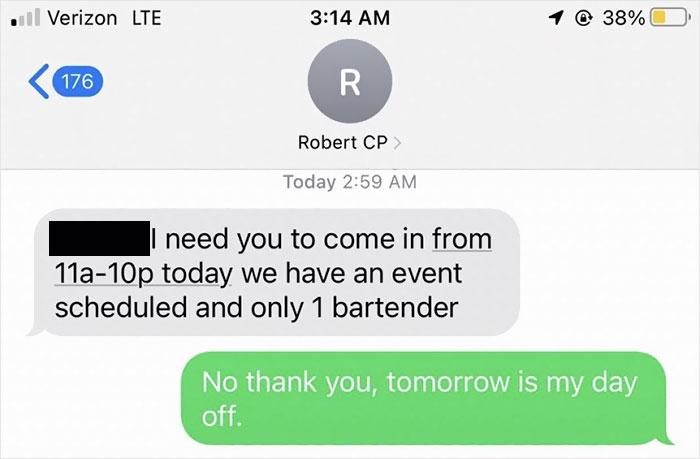
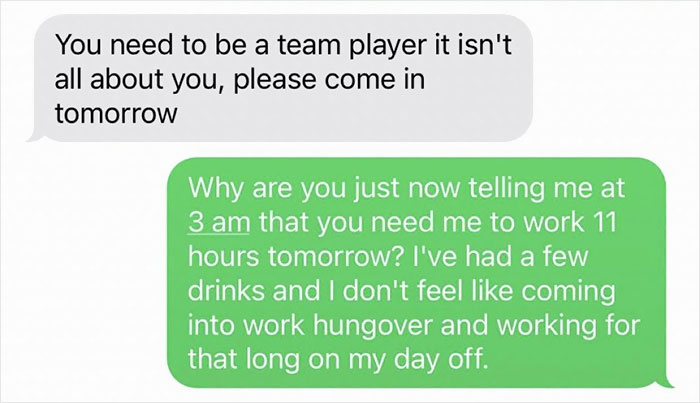

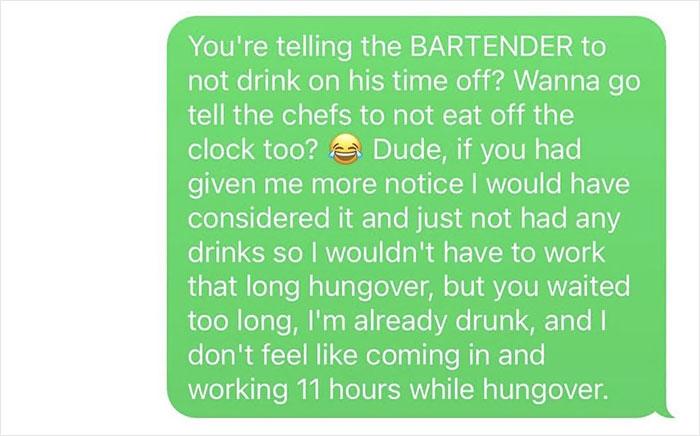

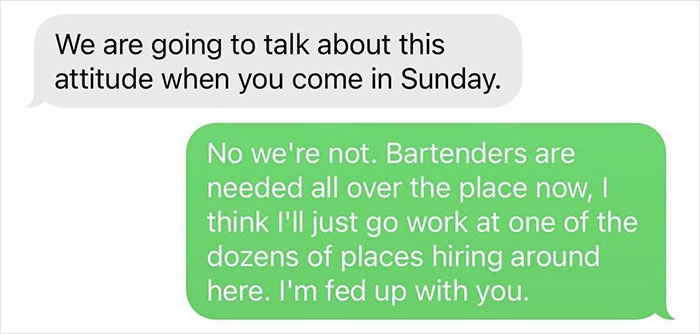





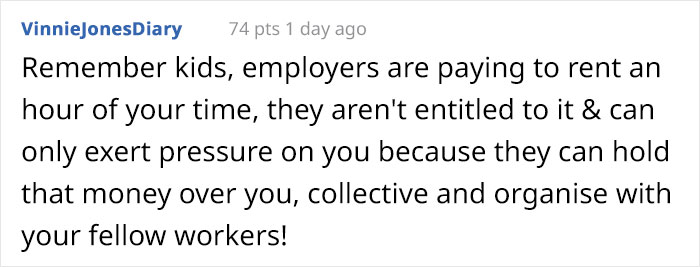

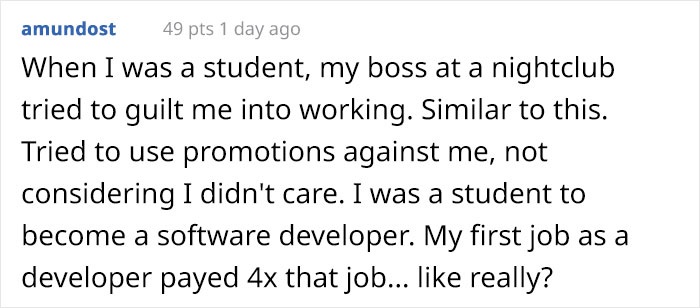

















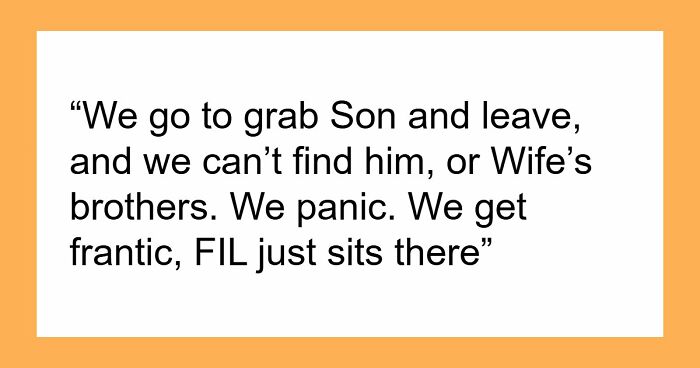
































127
47